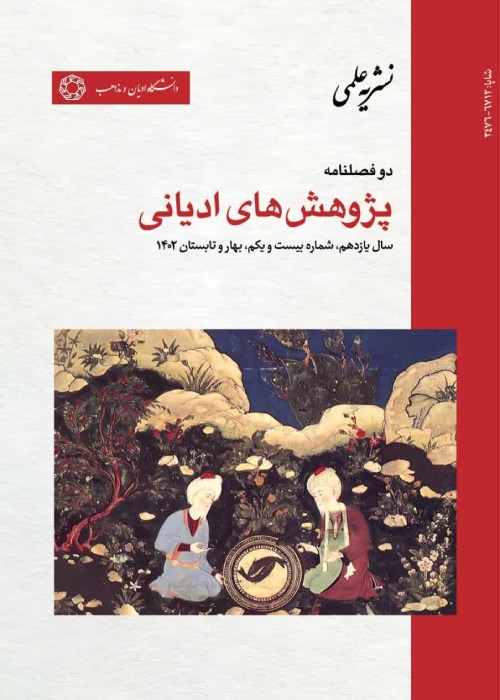Epistemology of Love according to Augustine and Ahmad Ghazali
The word "love" in literature in a general sense and in mystical literature in a special sense is one of the most frequent words in different religious traditions and contains various interpretations and analyses. In the epistemology of love, love is considered secondary knowledge. More attention has been paid to this type of investigation in the modern world. But a deep look at the works of the early scholars proves that despite the fact that they were centuries away from Kant's critique of reason and the emergence of epistemology, in their words and writings they addressed love as secondary knowledge and explored its dimensions. In the meantime, mystics such as Augustine in the Christian tradition and Ahmad Ghazali in the Islamic tradition had a significant impact on the epistemology of love, and in this field, they put forward their views not as lovers but as researchers of love. The findings of this research, which was carried out with a descriptive-analytical method based on library sources, show that despite the commonalities between Ahmad Ghazali's and Augustine's views on the epistemology of love, there are also some differences between them. Augustine analyzed the word "love" in detail, while Ghazali confined himself to general expressions. However, their views on the issue of the unity of love, lover, and beloved are so similar to each other that one can speak of the identity of their views. Both religious thinkers believed that "love" means will and desire and it is a covenant to return to God, however, Augustine considered the origin of this will and desire to be the man's will and Ghazali considered their origin to be the divine grace. At the same time, they had different and sometimes similar views on the types of love and their harm. Ghazali considered love to be single, whether divine or human, but Augustine only believed in the love of God. They completely disagreed on the damages or epistemic barriers of love; but they expressed common signs of love, such as faith, the lover's (man's) submission to the beloved (God), and the happiness of the lover.
Love , Affection , Epistemology , semantics , Augustine , Ahmad Ghazali
- حق عضویت دریافتی صرف حمایت از نشریات عضو و نگهداری، تکمیل و توسعه مگیران میشود.
- پرداخت حق اشتراک و دانلود مقالات اجازه بازنشر آن در سایر رسانههای چاپی و دیجیتال را به کاربر نمیدهد.


